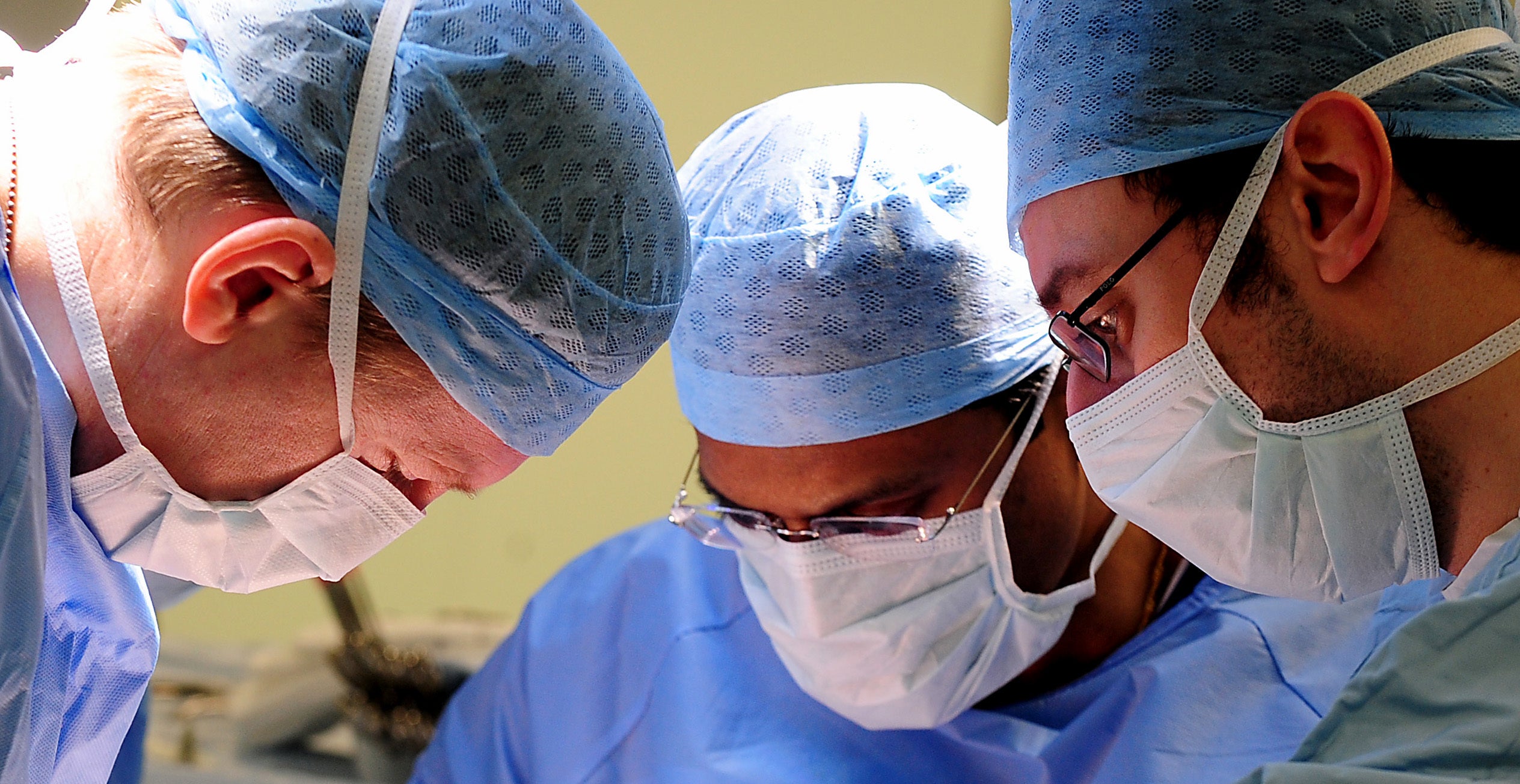Top surgeon tells MLAs: Health service faces ‘never before seen’ pressures
Mark Taylor told the Stormont Health Committee that surgeons are facing ‘moral distress’ because they are unable to carry out operations.

Your support helps us to tell the story
From reproductive rights to climate change to Big Tech, The Independent is on the ground when the story is developing. Whether it's investigating the financials of Elon Musk's pro-Trump PAC or producing our latest documentary, 'The A Word', which shines a light on the American women fighting for reproductive rights, we know how important it is to parse out the facts from the messaging.
At such a critical moment in US history, we need reporters on the ground. Your donation allows us to keep sending journalists to speak to both sides of the story.
The Independent is trusted by Americans across the entire political spectrum. And unlike many other quality news outlets, we choose not to lock Americans out of our reporting and analysis with paywalls. We believe quality journalism should be available to everyone, paid for by those who can afford it.
Your support makes all the difference.Northern Ireland’s health service is facing pressures “never before seen on these shores”, MLAs have been warned.
Mark Taylor, Northern Ireland director of the Royal College of Surgeons (RCS), told the Stormont Health Committee that surgeons are facing “moral distress” due to their inability to carry out operations due to the pandemic.
Mr Taylor said there are currently almost half a million people in Northern Ireland currently waiting for surgery or a first appointment with a hospital consultant, and added that this is increasing pressure on emergency departments.
The committee was hearing evidence about winter pressures on the health service.
Mr Taylor said: “We face pressures never seen before on these shores.
“Not only the effect of the Covid pandemic, and the brutalising effect that it has had on our staff and society as a whole but, also, the pressures that one was used to in the depths of winter (have instead come to) our shores at the end of July.
“And on top of that the difficulties of trying to sustain services has led to a moral distress in our ranks.”
The surgeon added: “The Northern Ireland waiting times were tragic before Covid and, unfortunately, they are now much worse.
“Waiting lists are at an all-time high; 474,445 people are waiting for surgery or a first appointment with a consultant, based on figures from November 2021.”
Mr Taylor said the RCS supported Health Minister Robin Swann’s elective care framework, launched in the summer to ease waiting list pressures.
Covid-19 has deeply impacted levels and capacity of elective surgery like never before. It has been stripped down to the very basics
He added: “We know our emergency departments and ambulance colleagues are facing the most immense pressures. We know about the pressures in social care and primary care alongside the volume of delivering intense vaccination programmes and this week we hear of a new variant, Omicron.
“Covid-19 has deeply impacted levels and capacity of elective surgery like never before. It has been stripped down to the very basics.
“We have elective surgeries, including red flag cases, for example cancer, which are regularly being cancelled.
“We have record attendances in the emergency departments and I would suggest in part the waiting lists and the inability to deal with people in surgical terms is further burdening the emergency departments as these people seek constant attention for the very condition that we have the ability to rectify.”
He told MLAs that the RCS supported the creation of surgical hubs across Northern Ireland.
“This will make surgical services more sustainable and independent of the pressures we are experiencing.
“It will also future-proof the service for further pandemics or winter pressures as they arise.
“Timely access to surgical services is key to the Northern Ireland recovery, including our economic recovery.
“The Government should publish an annual report setting out its response to the elective backlog in Northern Ireland and increase the data transparency.
“We are conscious of moral distress in our ranks. That moral distress comes from having a set of abilities, knowing what is needed to be done but finding it impossible to carry out such actions.
“We offer the recommendation that surgical hubs must be adopted throughout Northern Ireland.
“The public want their operation in a hub which is safe and they are willing to travel.”